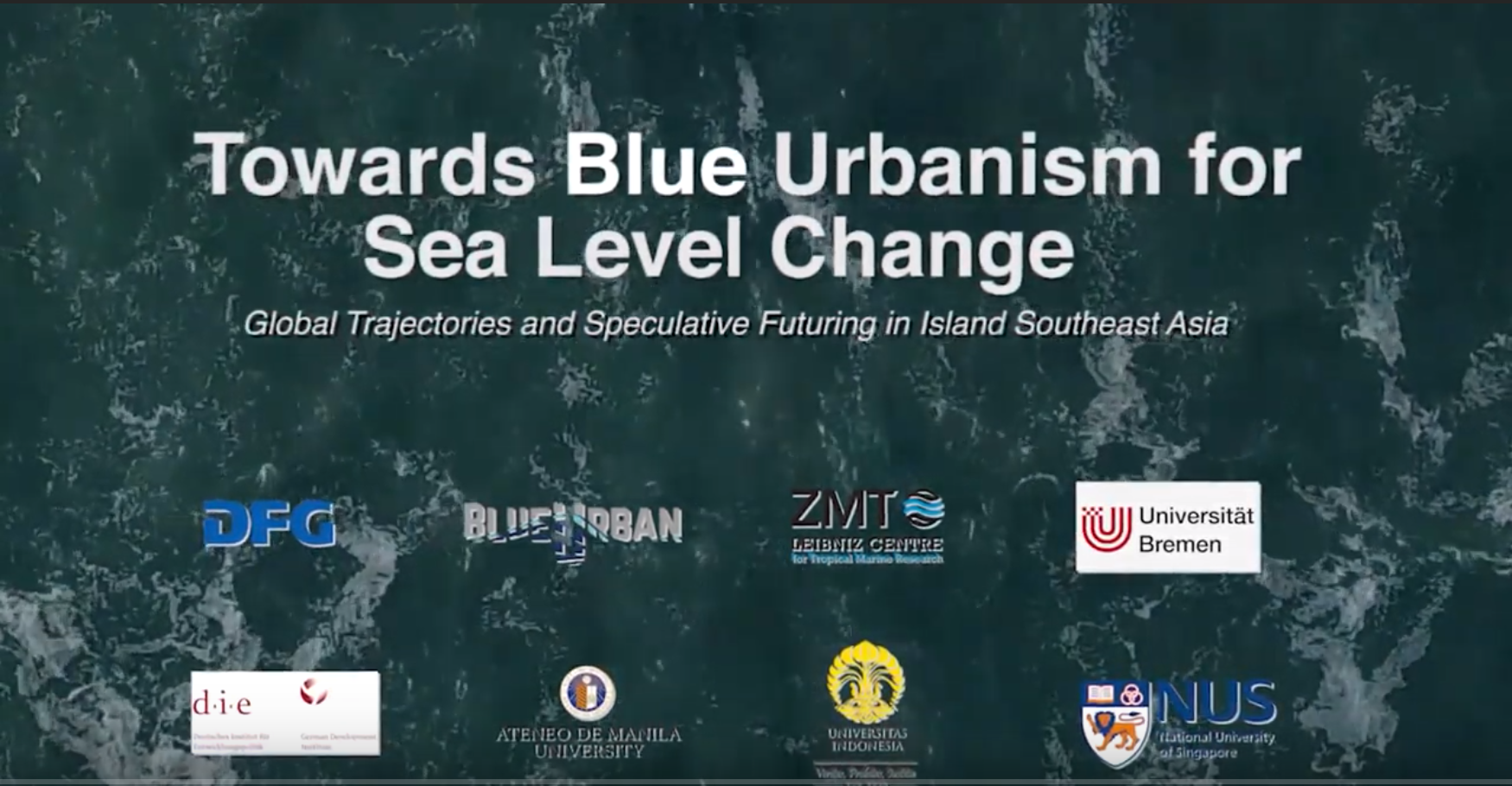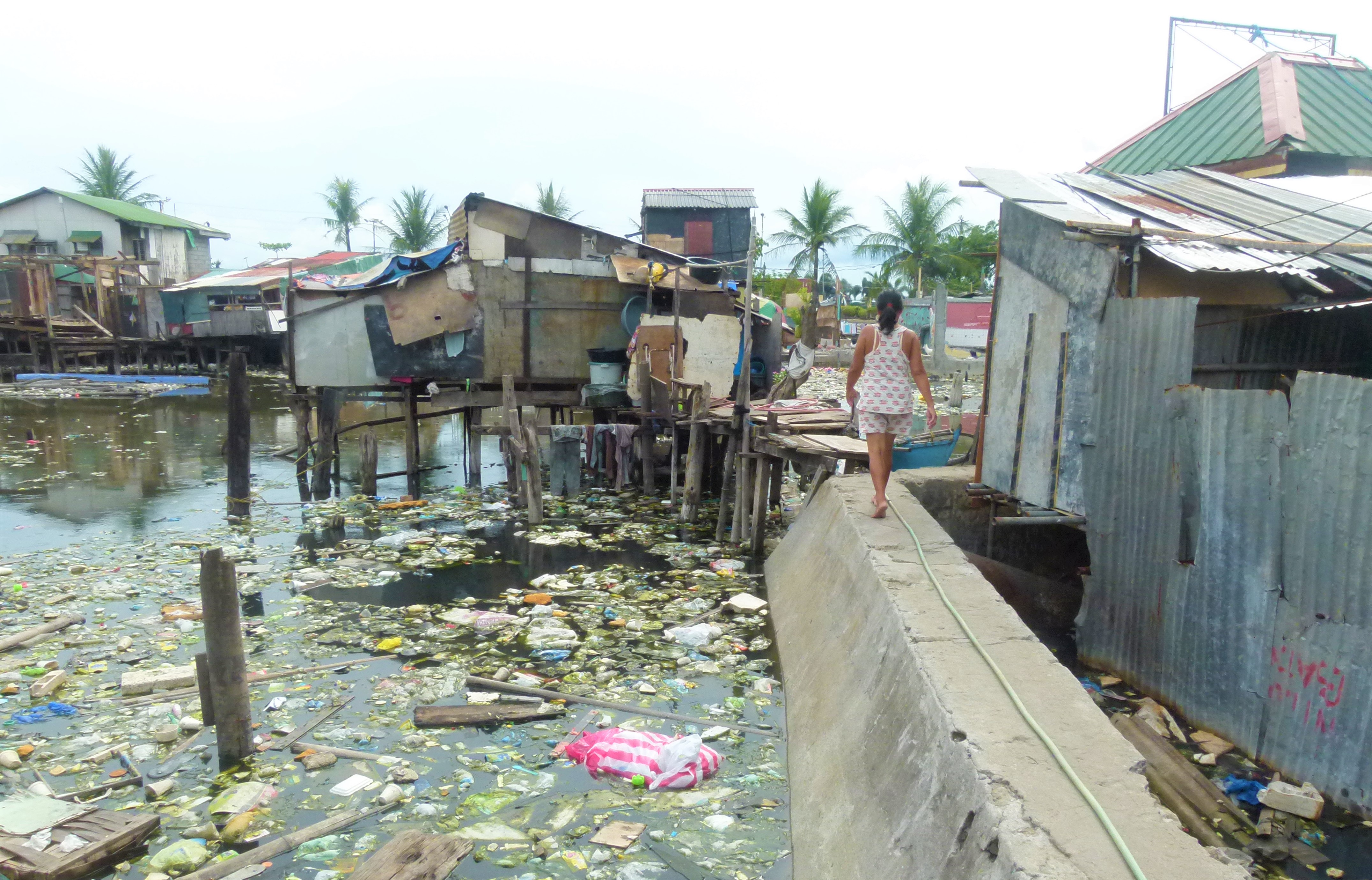Towards Blue Urbanism for Sea Level Change Adaptation at Island Southeast Asia
The 2nd phase SPP Sealevel research project BlueUrban recently launched a short video for the general public and scientists alike, offering an illustrative insight of the challenges of regional sea level rise to south and southeast Asia and the coastal cities in these regions, and a thorough brief overview of the research work embraced within the SPP SeaLevel BlueUrban project and their contribution there towards Blue Urbanism for Sea Level Change Adaptation, focusing on global trajectories and speculative futuring in Island S.E. Asia.
Even if global temperature rise is maintained below 20C, more than 570 cities built along the coasts will be exposed to storm surges and rising waters, and given their dense urbanised shorelines makes them particularly vulnerable to sea level changes, requiring both their waterfronts and shorelines alike to be continuously contested and remade.
In addition to the rapidly urbanized shorelines, oceanic spaces themselves worldwide continue to be increasingly industrialised, and this contemporary ‘coastal squeeze’ comes often at a time of relative sea level change, that is often singularly framed within globalist, apocalyptic discourses of socio-ecological risk and vulnerability.
Across most parts of the world, as in the context of archipelagic/island Southeast Asia, forms of adaptive practices remain strikingly similar, including narratives for change through socio-technical solutions, and the financialisation of risk, among others, devoting an enormous capital investment to ‘armouring’ of urban shorelines and other infrastructural projects for the purpose of protected living against rising waters, urban flooding, land subsidence, and extreme weather events. Nevertheless, at the same time high value real estate development and coastal privatisation around the world reflect a vastly different, opposed reality in embracing divergent kinds of coastal futures, the SPP BlueUrban project explores these aspects at the coastal megacities of Jakarta, Metro Manila, and Singapore by examining both risk-centred and opportunity-driven paradigms and solutions for sea level change adaptation at these areas.
Who are cities built for, and why? Contemporary visions of living with sea level change and land subsidence are dystopic for some while such urban futuristic imaginaries turn to be utopic for others, explains the SPP BlueUrban project, climate change adaptation is increasingly being rendered a new profit frontier in the 21st century.
New forms of “Blue urbanism” and blue-green innovation (cf. Beatley, 2014; Assmuth et al., 2017) have been promoted by regional and local planners and policymakers to both living with environmental uncertainty, but also reconnecting particular forms of urban life with oceanic spaces, such as infrastructural futures as a means of understanding broader entanglements of placemaking, identity and belonging/exclusion, alongside changing urban aspirations and contending visions of citymaking. For this, the the SPP SeaLevel BlueUrban project examines how global networks of innovation for living with sea level change influence diverse ways in which Southeast Asia’s coastal cities futuristically reimagine, challenge, and materially shape their urban environments in the century to come, by focusing more on two emerging sets of practices that are gaining increasing policy traction: multifunctional “superdikes” and technologies of floating (or “amphibious”) structures and artificial islands.
On a more conceptual level, the project advances nascent research on the micro-politics and global epistemic mobilities of coastal “speculative futuring” for change adaptation, further information about the 2nd phase SPP Sealevel research project BlueUrban can be found here and at their newly launched individual BlueUrban website here.


